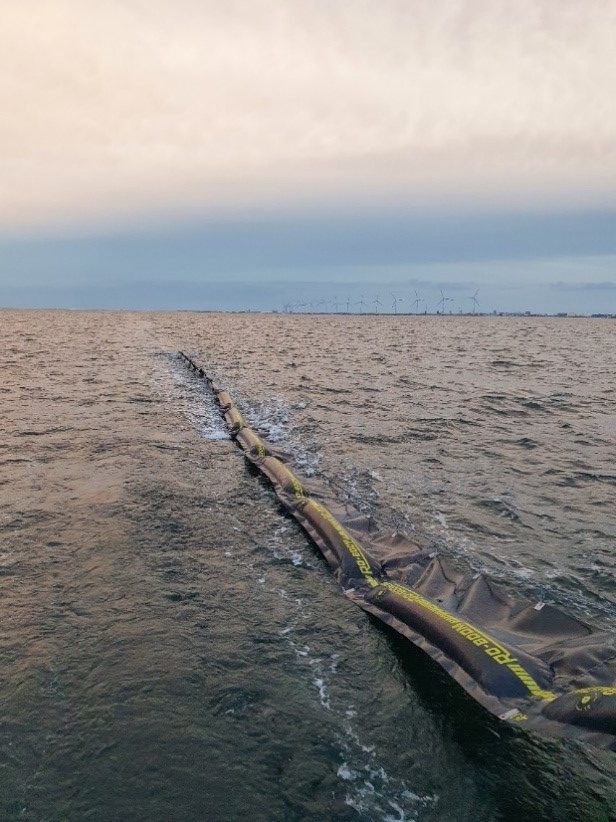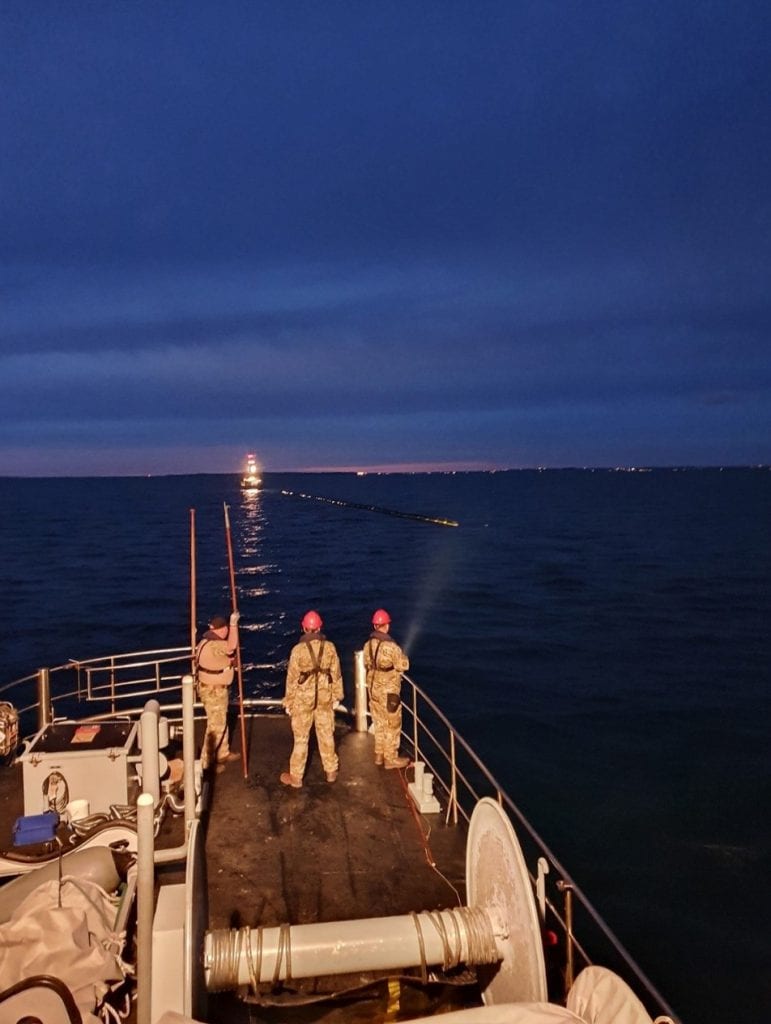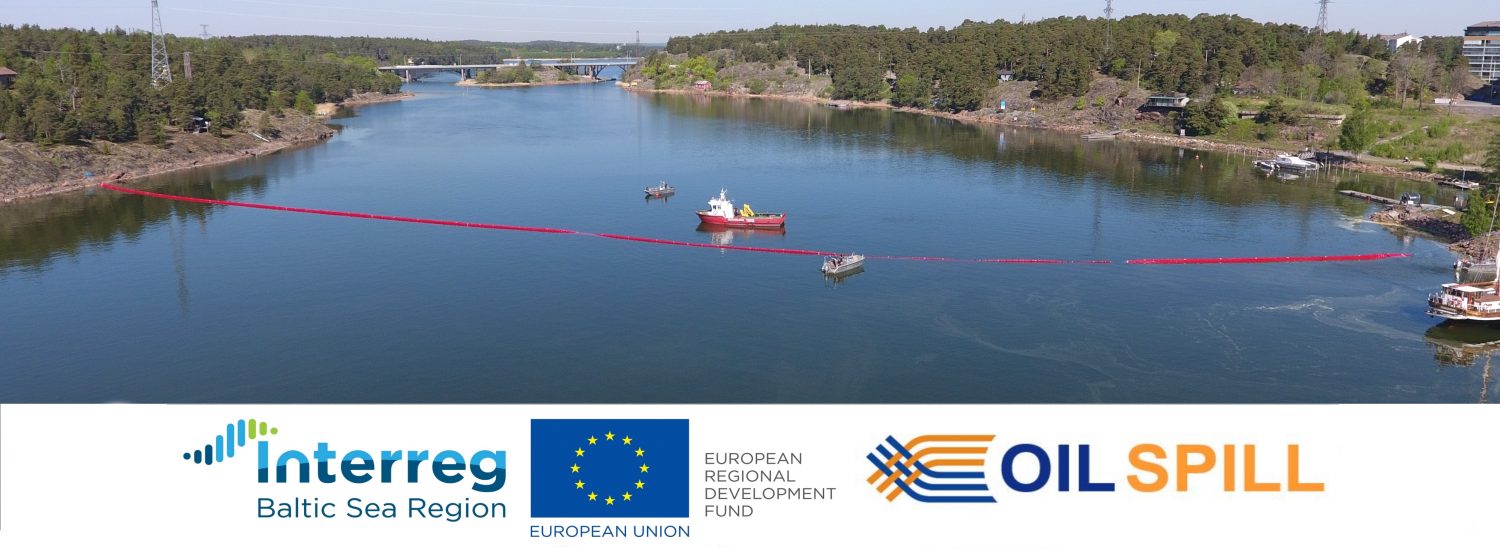Marine Environmental Preparedness in Denmark: Cooperation, Exercises and Challenges (3/3)
In this three-part blog series the roles of different stakeholders participating in the oil spill response in shallow waters and coastal areas in Denmark are explained. This last article focuses on cooperation, exercises and challenges.
Written by Kia Friis Petersen, Danish Civil Protection League
Cooperation
Cooperation is the number one necessity to ensure an efficient response operation if a large oil spill occurs in Danish waters. Depending on the oil spill’s size and location, either the Navy or a municipality will lead the operation. The list of authorities and organizations who can take part in the response in one way or another is long.
The Navy and municipality can cooperate with each other as well as with other municipalities and fire and rescue services, harbors, the Marine Home Guard, DEMA, the police, the Environmental Protection Agency, the Nature Agency, Dansk Miljørådgivning (Danish Environment Counselling), private entrepreneurs to collect, deposit, transport, and destruct the oil, and other countries with whom the Danish State have cooperation agreements. The cooperation is ensured through joint plans and exercises. The companies close to the coasts or harbors that might play a critical role due to emission of pollutants can also participate during an operation.

Exercises
The different authorities that compose the maritime preparedness participate in various exercises. The Navy organizes five national exercises every year. The exercises change between the twelve police districts in which the different authorities and entrepreneurs participate. They also shift between the two Naval bases, so each actor can participate in their own area. The Navy also organizes two national exercises per year for the entire Navy environmental preparedness.
The Navy participates also in BALEX DELTA, an international full-scale exercise organized annually by one of the Baltic Sea Region countries. All Danish authorities can also participate in the international exercises organized in bi- and multilateral agreements such as the SWEDENGER plan by Sweden, Denmark, and Germany.
The 28 municipal fire and rescue services in Denmark organize their own exercises as well, some coordinating the exercises with each other as their response plans are joint. Likewise, the Naval Home Guard’s many staffs train oil spill response several times a year. At Brøndby Harbour, the staff does not plan exercises for they frequently “train” with the small real-life scenarios happening at the harbor. Likewise, they do not plan exercises in DEMA for the conscripts. They are at the centers for only nine months, and therefore there is not enough time for extra exercises besides the education in oil spill response. However, DEMA still participates in the national exercises.
Challenges
In the Danish Maritime Preparedness, there are few but vital challenges. One is the condition of the Navy’s ships. The four large ships were all built and launched around 1980. With almost 40 years of service, the ships require regular maintenance at a dockyard, thus being out of service for a some time. If the vessels Marie Miljø or Mette Miljø are out of service, Gunnar Seidenfaden or Gunner Thorson will change from 16 hours’ response time to two hours, which alters the work schedule for all crew members at the ship.
In 2016, the Ministry of Defence decided to purchase new ships that would replace the four environment units. However, this action was removed from the Defence Agreement in 2018. At some point, however, it will be necessary to replace the ships, but the timing is still unknown.
One of these previously planned new ships would have been ‘a chemical ship’ able to handle chemical spills. The Navy’s current ships are not built for chemical spills. The interior fittings are not sealed, meaning that they would allow the toxic gases to enter. In case of a chemical spill in Danish waters, we will have to rely on our international agreements with Sweden and Germany with chemical ships.
An oil spill in shallow waters will most likely hit the coast. Therefore, the municipality and fire and rescue service – responsible for the coast clean-up – decide when an operation should end. A law or national guideline that describes when a clean-up operation can be ended does not exist at the moment. This issue can be a challenge when deciding whether enough oil has been removed for the environment to recreate itself and to avoid harm to citizens using the area. Especially because oil spills happen so rarely, the practical expertise is not created. Likewise, the distinction between shallow water and the open sea is not clearly defined, making the responsibility unclear if an oil spill happens close to the coast. Thus, it will be decided at request or after an initial response is launched by either the Navy or the affected municipality.

Conclusion
This article series presented a selection of authorities and organizations that have an active role in oil spill response in shallow waters or coastal areas in Denmark. The ships and equipment at disposal vary at harbors and municipalities, but the general concept of protection and cleaning is the same. For instance, larger industrial harbors have a bigger setup to handle oil spills than small yachting harbors. Each should nevertheless have a plan to contain and collect the oil either independently or with assistance.
With both the national forces and local expertise, we are prepared for an oil spill at the almost 9,000 km long stretch of coast in Denmark. But as with everyone else in the OIL SPILL project, we strive to be even better and improve our preparedness in oil spill response.
Read also about the Baltic Carrier accident in 2001, the largest oil spill incident in Denmark, here.

Leave a Reply